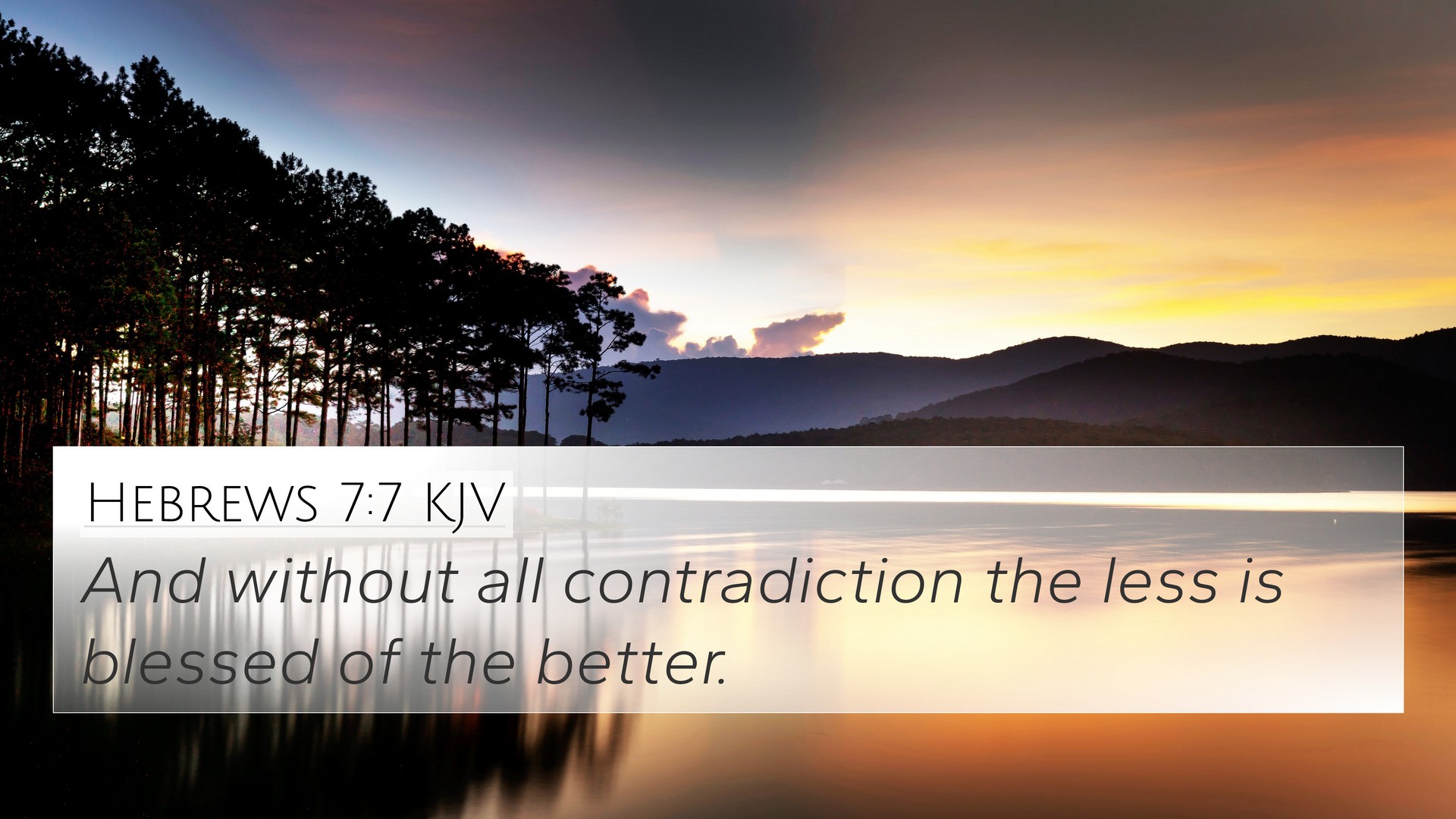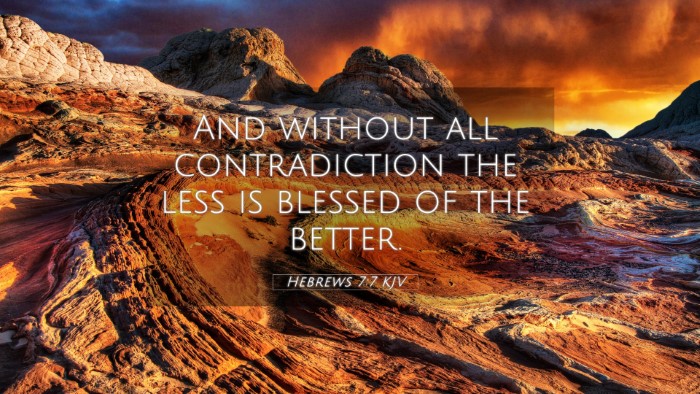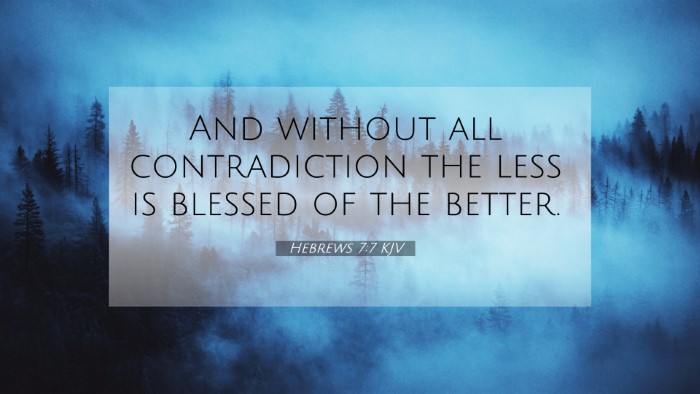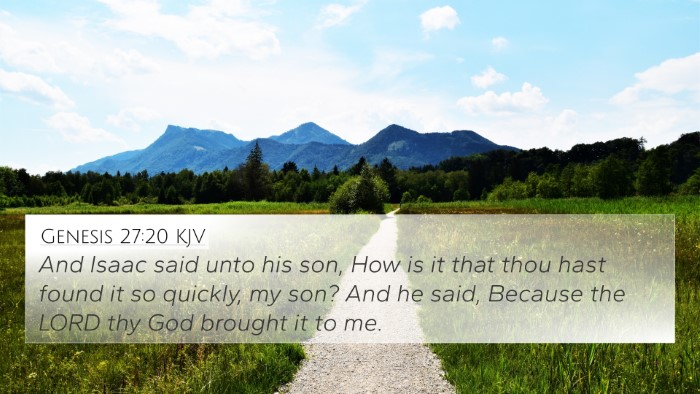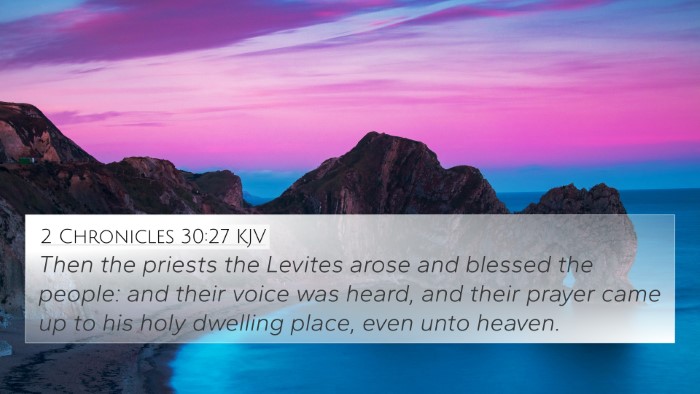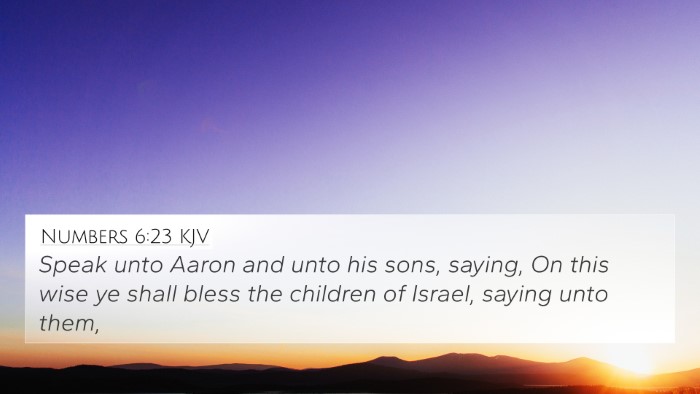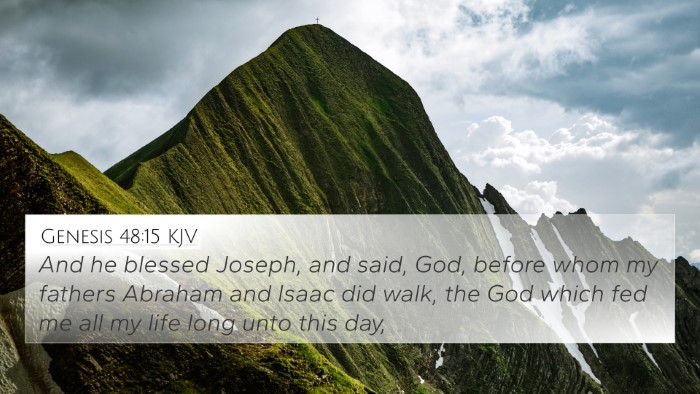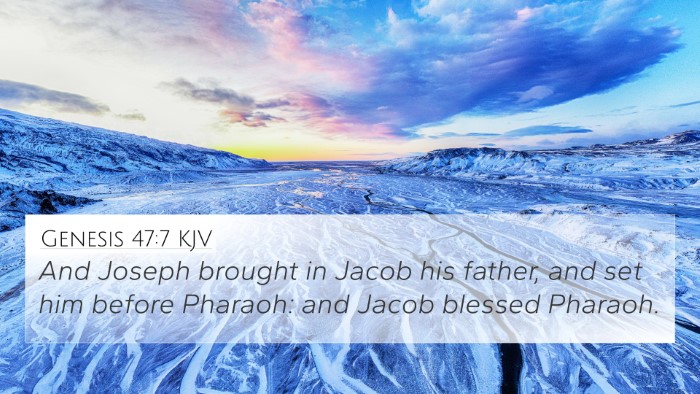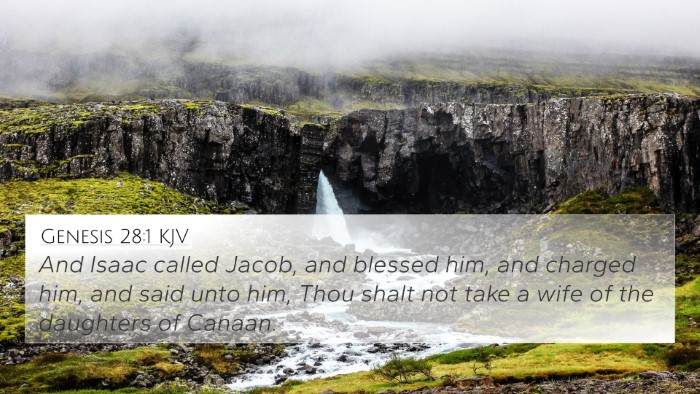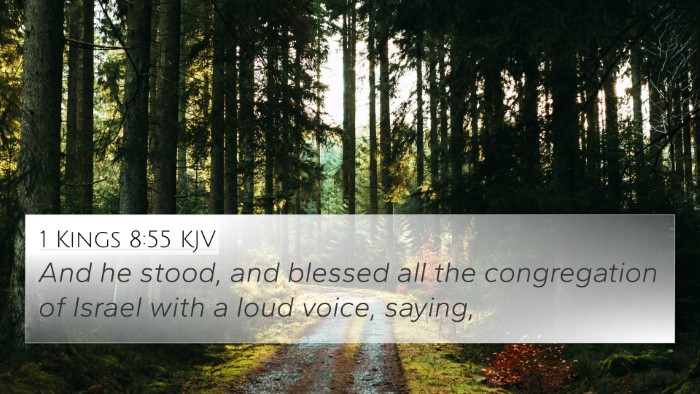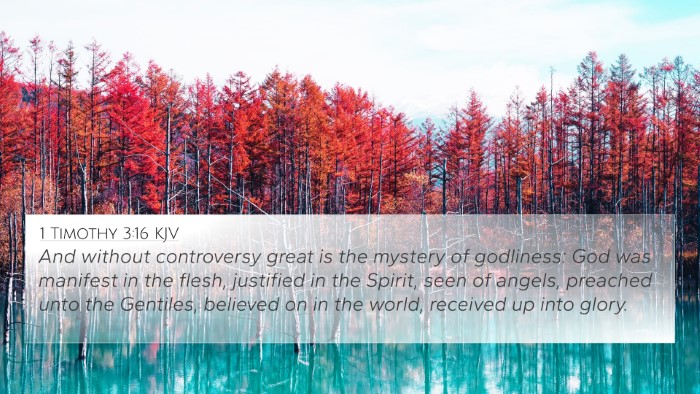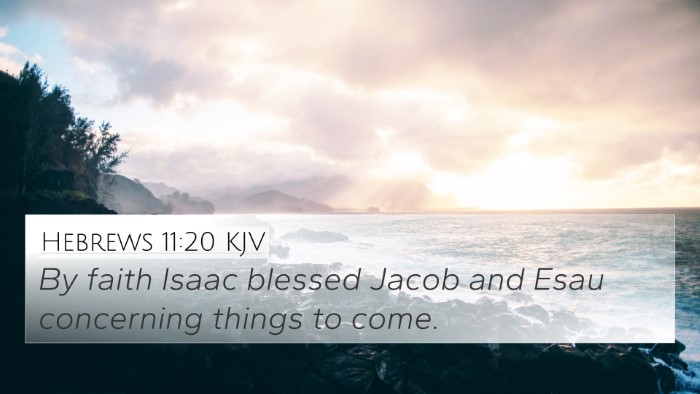Understanding Hebrews 7:7
Verse: "And without all contradiction the less is blessed of the better." - Hebrews 7:7
Summary of Meaning
Hebrews 7:7 presents a profound truth about the nature of blessings and authority within a spiritual context.
It highlights the principle that the lesser (in terms of status or order) is blessed by the greater.
This notion is rooted in the author's discussion of the priesthood of Melchizedek compared to that of Levi, asserting that
Melchizedek, who preceded Levi, holds a superior priestly office which conveys a greater blessing.
Insights from Commentaries
-
Matthew Henry:
Henry emphasizes the superiority of Melchizedek and suggests that the practice of blessings in the Old Testament illustrates
how the greater figure bestows favor upon the lesser. This is crucial for understanding Christ’s eternal priesthood,
which surpasses the Levitical order.
-
Albert Barnes:
Barnes argues that the verse solidifies the argument surrounding Christ's priesthood, establishing Him as superior to
the Levitical priests. He explains that the act of blessing indicates a hierarchical structure, where spiritual favor flows
from those with greater authority to those beneath them.
-
Adam Clarke:
Clarke provides a historical perspective, noting that the act of blessing across cultures signifies recognition of
superiority. He further elaborates on the implications of Melchizedek's superiority in relation to Christ and the transformative
aspect of blessings in the New Covenant.
Cross References to Explore
To understand the depth of Hebrews 7:7, consider exploring the following Bible cross-references:
- Genesis 14:19-20 - The Blessing of Abram by Melchizedek
- Psalm 110:4 - The Lord has sworn and will not change His mind: "You are a priest forever, in the order of Melchizedek."
- Matthew 5:3 - "Blessed are the poor in spirit..." - A connection to the blessings dispensed from a higher authority.
- Luke 6:38 - "Give, and it will be given to you..." - Highlights the principle of receiving blessings.
- Hebrews 7:1-3 - Detailed reference about Melchizedek's priesthood and significance.
- 1 Peter 3:9 - "do not repay evil for evil or insult for insult. On the contrary, repay evil with blessing..." - The underlying principle of blessings.
- James 4:10 - "Humble yourselves before the Lord, and he will lift you up." - An illustration of the recipient of blessings.
Connections Between Bible Verses
This verse serves as a linchpin linking various themes and teachings across Scripture. The following points illustrate
the thematic Bible verse connections:
-
Comparative Study:
The connection between Melchizedek and Christ is explored in greater detail in the New Testament, specifically in the
Book of Hebrews, underscoring their shared attributes of priesthood and royalty.
-
Inter-Biblical Dialogue:
Hebrews establishes a conversation between the Old Testament priesthood and the fulfilled priesthood in Christ,
suggesting continuity and culmination in God's redemptive plan.
-
Old and New Testament Links:
This verse reflects God's ongoing narrative of authority and blessing throughout both Testaments, reaffirming the
unbroken line of divine order.
Tools for Bible Cross-Referencing
To enhance your study, consider the following tools for Bible cross-referencing:
- Bible Concordance
- Bible Cross-Reference Guide
- Cross-Reference Bible Study Tools
- Bible Reference Resources
Conclusion
Hebrews 7:7 encapsulates a key theological principle regarding blessings and authority, inviting believers to
recognize the importance of divine order and the transformative nature of Christ's priesthood. Through a thorough
exploration of its context and connections, one can gain a richer understanding of the implications of this verse in
relation to both Old and New Testament scripture.
